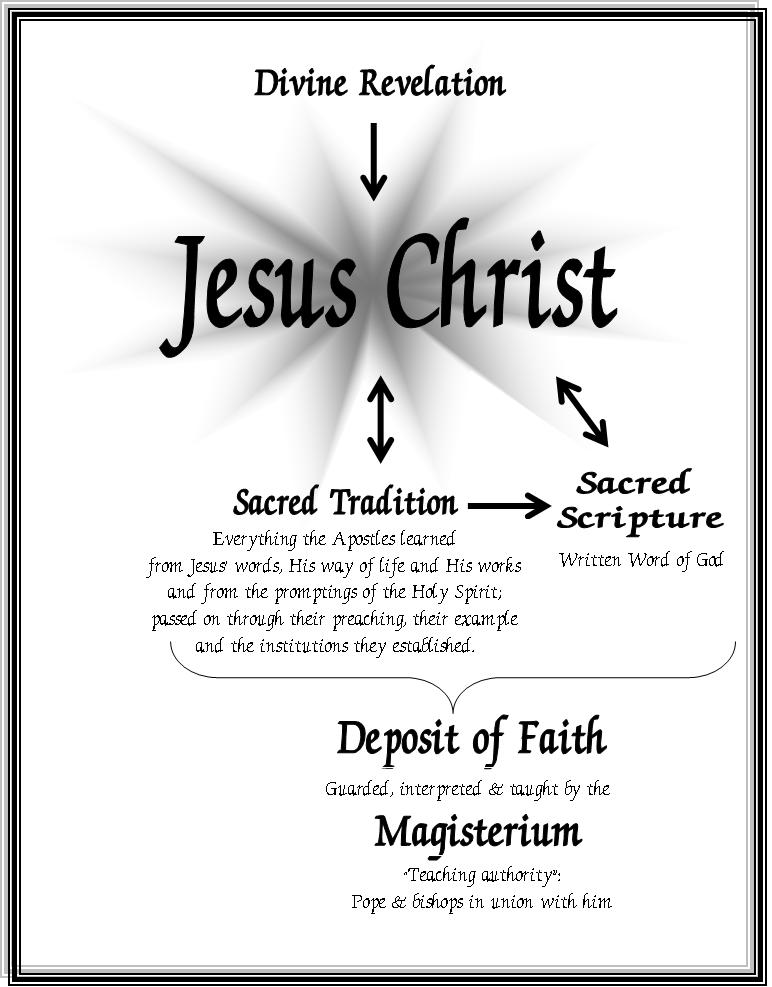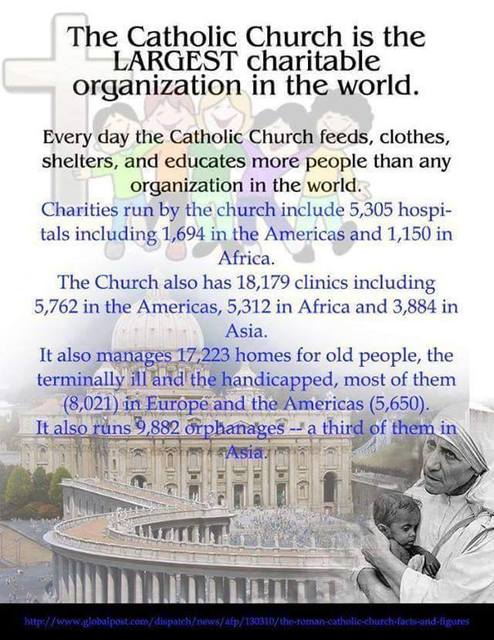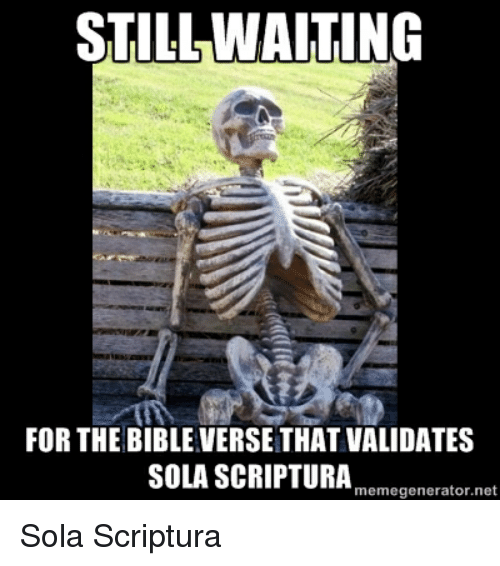Ignatius the Kiwi,
Sola scriptura (Scripture alone) was practised by a leading apostle, Paul, in his writing, "All Scripture is God-breathed...." (2 Tim 3:16 NIV).
2 Tim. 3:14 – continue in what you have learned (TRADITION) and believed knowing from whom you learned it. (MAGISTERIUM) Paul lists Scripture last, not first.
2 Tim. 3:16-17
This passage doesn't teach formal sufficiency, which excludes a binding, authoritative role for Tradition and the Church. Protestants extrapolate onto the text what isn't there. If we look at the overall context of this passage, we can see that Paul makes reference to oral Tradition
three times (cf. 2 Tim. 1:13-14, 2:2, 3:14). And to use an analogy, let's examine a similar passage:
Ephesians 4:11-15
If 2 Timothy 3 proves the sole sufficiency of Scripture, then, by analogy, Ephesians 4 would likewise prove the sufficiency of pastors and teachers for the attainment of Christian perfection. In Ephesians 4, the Christian believer is equipped, built up, brought into unity and mature manhood, and even preserved from doctrinal confusion
by means of the teaching function of the Church. This is a far stronger statement of the perfecting of the saints than 2 Timothy 3, yet it does not even mention Scripture.
So if all non-scriptural elements are excluded in 2 Timothy, then, by analogy, Scripture would logically have to be excluded in Ephesians. It is far more reasonable to recognize that the absence of one or more elements in one passage does not mean that they are nonexistent.
The Church and Scripture are both equally necessary and important for teaching.
All Scripture here refers primarily to the OT but 2 Peter 3:13-16 (NIV) compares Paul's writings with "the other Scriptures". So, Peter regarded Paul's writings as Scripture:
1 Pet 3:15-16
The nerve of Peter acknowledging Paul's letters as Scripture! Doesn't he know Paul is supposed to acknowledge his letters???
I don't see how. The NT didn't yet exist at this time.
You want authority to reside in men but not in a book subject to interpretation. Are you joking!
Why the false dichotomy?
It's OK for you to agree with authority of men (Apostolic Succession) whose words and traditions are just as subject to interpretation as the Scripture.
If "authority of men" is such a bad word, how did we get the canon of Scripture in the 4th century? How many Apostles were still alive at the Council of Carthage in 397 AD? If the Holy Spirit wasn't guiding "the authority of men", there would be no Bible. This is a big problem for sola scripturists. FYI, Sacred Tradition, properly understood, has the same divine protection from error as does Scripture. If it didn't, you would have no Bible. There is a complementarity with Scripture and Tradition and just because the mode of transmission is different does not mean one is inferior.
Why are Protestants so obsessed with changing the meaning of Tradition? Looks to me like a false tradition of men.
The difference is: Apostolic Succession deals with human limitation at the source. Scripture deals with God-breathed authority at the source but allows for fallible interpretation by human beings. However, it's the interpretation that can be incorrect, not the Scripture in the original MSS.Oz
First you change the meaning of Tradition, then you change the meaning of apostolic succession. Two straw men.




